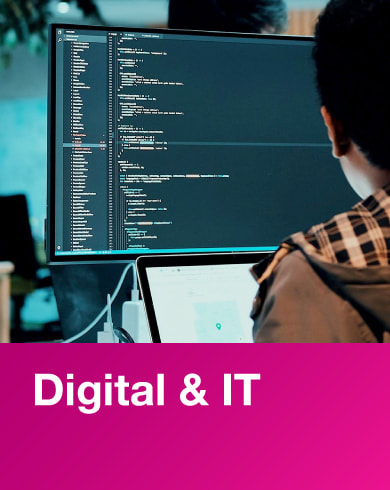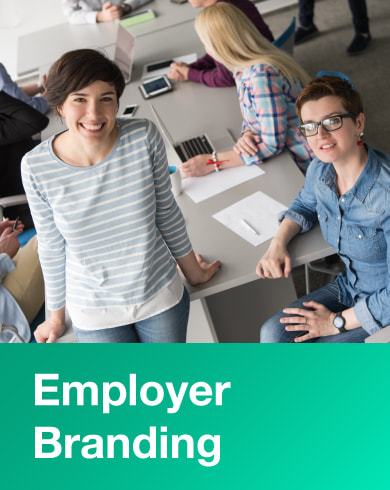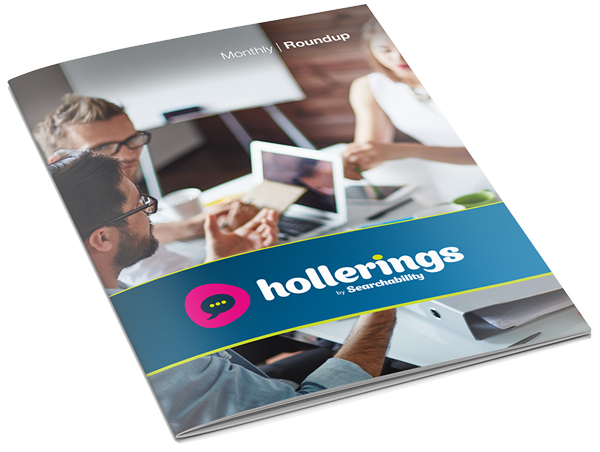Please introduce yourself and give a brief overview about your degree and your current role:
I’m Danielle, and I recently graduated from the Computer Science for Games course at Sheffield Hallam University. My degree taught me how to code (having had no prior experience) and covered many aspects of games development and how all of this applies to the workplace. I am currently a Junior Software Engineer at GameSessions, a games distribution company. I am responsible for full stack web development within a small team of devs and work closely with marketing to help deliver an engaging and user-friendly online experience for the company.
How did you secure this role?
I began doing some light research into companies who were recruiting software developers in Sheffield, and was approached by Searchability on behalf of GameSessions, who invited me for an interview with the CEO and CTO. This was fairly casual and lasted for about an hour and involved me discussing both my University work and my placement year, as well as my personal achievements and interests. I was offered the role a few days later, and I asked to pop in for half a day to meet the team before I accepted to ensure I was the right fit for the company.
Do you have any advice for working with recruiters? How about searching for jobs on job boards or via LinkedIn?
I think being open to anything plausible is key. When I started searching, it was daunting seeing so many opportunities out there, especially when I wasn’t too sure what exactly I was looking for in the first place! It’s important to sit down and think about what your skills are, both technical and professional, and decide if you have any preference for the role you want to take. Maybe you really enjoyed your networking module at Uni so you want to continue doing that, or you want work on front-end programming for websites, or you might be happy doing anything as long as it’s coding -anything goes, but if you know from the onset what you want to gain from job searching, you’re likely to find the results you want quicker.
Recruiters are there to help you as much as the companies they are recruiting for, so don’t be afraid to ask for their advice. Most will offer a chat over the phone as commonplace before forwarding any CV to an employer, so if you have any queries about a role this is the perfect time to ask them. Remember, discussing a role with a recruiter doesn’t necessarily mean you have to go ahead and apply – but the more informed you are, the better equipped you are to make that decision.
What were the most important factors to you when deciding on the right graduate role?
It was important to me that I would be working on projects that I would enjoy and have an opportunity to progress my skills and knowledge at the same time. With software engineering, you should never stop learning even after you graduate – there’s always new frameworks to learn and better ways of working that you won’t realise until you’re working on real world projects. I feel that at this early stage of my career, being able to try new things is very beneficial in helping me shape what my career path should be going forwards. I already had a job offer from the company where I completed my placement year, which I very nearly accepted as I loved working there, but I decided this was the most convenient time to bite the bullet and try something different. Location was also a big factor; I love Sheffield too much and I don’t want to leave just yet!
Do you think completing a placement year has helped you in getting where you are today? If graduates haven’t completed a placement year themselves, what would you suggest they do to cement the skills gained through their degree and make their CV stand out?
Yes, 100% yes. Being able to experience working in the industry first hand before graduating was invaluable to me, not just because of the opportunity to expand on my skills from university, but also perhaps more importantly being able to take part in new situations such as giving presentations and being involved in meetings. My confidence grew massively over the course of that year, and that definitely helped when it came to applying for graduate jobs. If you haven’t completed a placement year, it’s good to try and get involved in other extracurricular projects to help you stand out from the crowd and give yourself more to talk about in interviews. Look out for things like game jams and hackathons, which happen regularly across all parts of the country, and give you the opportunity to practice skills learned from uni and spend time with friends – or make new ones!
When would you recommend those graduating this year to start their job hunt?
As soon as you feel ready to. I know it can be challenging juggling the final year workload and job searching, and then preparing for any subsequent interviews, but the whole point of University is to become more employable, and now is your chance to be proactive and grab those opportunities. I wouldn’t say that there is one ideal time to start; it all depends on what you’re looking for. If you want to get onto a graduate scheme (which operates similar to a placement year with training in place), these positions usually open up earlier in the year, so you’ll need to start earlier. Otherwise, graduate and junior positions will be opening up all the time, so keep an eye on LinkedIn and job boards and ensure your CV is up-to-date and ready to go.
How did you prepare for software engineering interviews?
First things first, I read through the role description and pick out the desired skills that the employer is seeking. I’ll brush up on the terminology and basic information I should know on the languages the company uses so I can be as ready as I can be for any questions about them. If there are any languages or software listed that I don’t have experience with, I’ll do some light research into them and what their common uses are, if they have any similarities with languages I do know, etc. Some companies will want to give you a coding exercise to complete, some will just ask you questions, and others won’t bother with technical questions at all, but it’s important to try and prepare for all situations so you don’t get caught out – but don’t get hung up trying to memorise every single thing you’ve learned at uni! Most employers will be looking for basic competency and a genuine interest in the work you do.
Other than technical abilities, what other skills or competencies is it important to demonstrate in job interviews?
Employers don’t just want someone who is a “whizz-kid programmer”, they want to know that you can work well in a team, have good communication skills and work well under pressure. Being able to program well is only half of the role, you need to back it up with these vital personal skills. Read through your CV and ensure that you can talk in detail about everything you have written in it – from education, to work experience, to interests. Don’t write anything on your CV that you can’t convincingly justify in an interview! Make sure that you can draw evidence of these skills from your past experiences. You were the scrum master of your group project? Talk about it! You’ve been a member of a sports team or society throughout Uni?Mention it – it shows commitment and team work skills!
Other than that, make sure you show an interest in the company. Always research the company beforehand, what they do and what their aims are. Use the interview to get as much information about the company as you can – it’s an opportunity to see if you like them as much as it is for them to see if they like you, and they will be impressed that you took the time to investigate them. I am very lucky and very proud to say I have a 100% success rate from software engineering interviews thus far, so I hope my advice is helpful!
Any final words of advice for new graduates looking to secure their first roles?
Good luck! This is an exciting chapter in your lives, try and enjoy the process and don’t stress!










